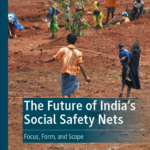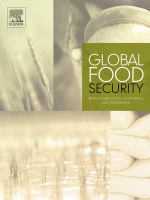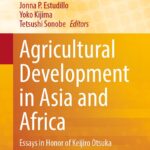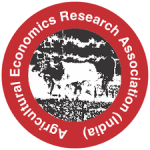Author: Prabhu Pingali

Reducing the True Cost of Food-Based Safety Nets: Evidence from India’s Subsidized Food Program
Abstract Public procurement of food plays a pivotal role in determining the production and consumption of various food items. This is particularly true for staple grains in countries such as India, where the government procures over 40 percent of rice and wheat. This grain is...

The Future of India’s Social Safety Nets: Focus, Form, and Scope
India’s rapid economic growth and wealth creation in the past three decades have been marred by its persistently high levels of poverty and child undernutrition, along with rising inequality. Social safety nets, for those left behind, have therefore gained in eminence as a redistributive mechanism....

Did the COVID-19 Lockdown Reverse the Nutritional Gains in Children? Evidence from Rural India
Abstract Read a policy brief based on this study. To address the missing link that goes beyond the changes in dietary consumption and food expenditures to assess the impact of the pandemic on child undernutrition, specifically anthropometric outcomes, this paper uses primary panel data (pre-...

Farmers and Consumers Pay the Price for Burdensome GM Regulations: The Case of GM Mustard in India
Policymakers in India have taken the first step to allow commercial cultivation of genetically modified (GM) mustard. The conditional approval for the environmental release of the Dhara Mustard Hybrid (DMH)-11 and its parental events bn3.6 and modbs2.99, given by the…

Leveraging Men’s Education as an Effective Pathway for Improving Diet Quality: Evidence from Rural India
Abstract Read a policy brief based on this study. Investing in nutrition-sensitive sectors such as education can be an effective strategy for combatting malnutrition. In this paper, we analyze the role that men’s education plays in determining dietary diversity outcomes using primary data from 3600...

Hybrid Mustard and Biotechnology: Pathways for Doubling Farmers’ Incomes and Nutritional Security
Abstract The government’s decision to move ahead on the much-delayed genetically modified mustard developed by the University of Delhi signifies a turnaround and bodes well for the country’s food system. Numerous tests over the last 20 years prove its safety for food, feed, and the...

Making Meat and Milk from Plants: A Review of Plant-Based Food for Human and Planetary Health
Abstract Interest in alternative protein sources to substitute for animal source protein-rich foods has emerged alongside calls for sustainable food systems to meet protein demands as the global population grows towards a projected 9.8 billion people by 2050. Food companies are capitalizing on sustainable diet...

Can We Agree on a Food Loss and Waste Definition? An Assessment of Definitional Elements for a Globally Applicable Framework
Abstract Recent strategies for achieving sustainable food systems have called for reducing food loss and waste (FLW), most notably Sustainable Development Goal (SDG) target 12.3. This review aims to compare FLW definitions that are relevant to SDG target 12.3 and opportunities to harmonize the FLW definition. Using the FAO...

Are the Lessons from the Green Revolution Relevant for Agricultural Growth and Food Security in the Twenty-First Century?
Abstract The Green Revolution had profound positive impacts on human welfare and economic development across the developing world. However, its global reach was limited by agroclimatic, infrastructural, social, and political constraints. Regional disparities in poverty reduction, intra-societal inequities, and gender differences in the distribution of...

Nutrition-Sensitive Food Systems and Biofortified Crops
Abstract The realization that economic growth is a necessary but insufficient condition for improving the nutritional status has led to a paradigm shift in addressing malnutrition through nutrition-sensitive development. Biofortification is one such nutrition-sensitive food system intervention designed to supply crucial micronutrients through staple diets...

